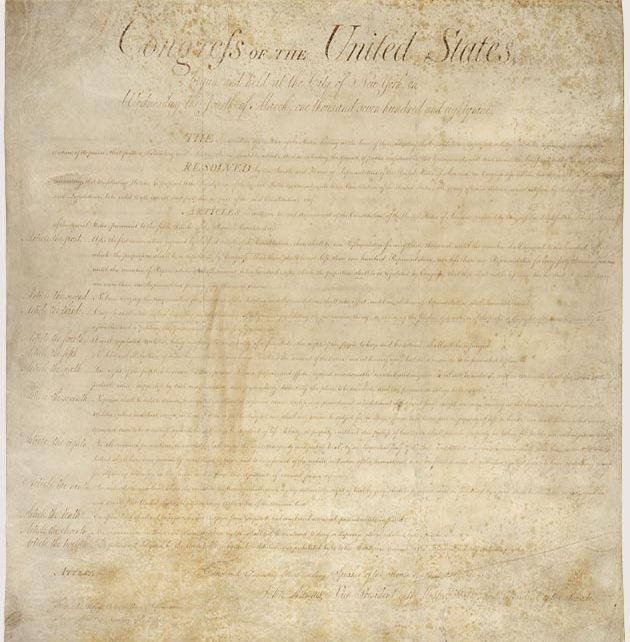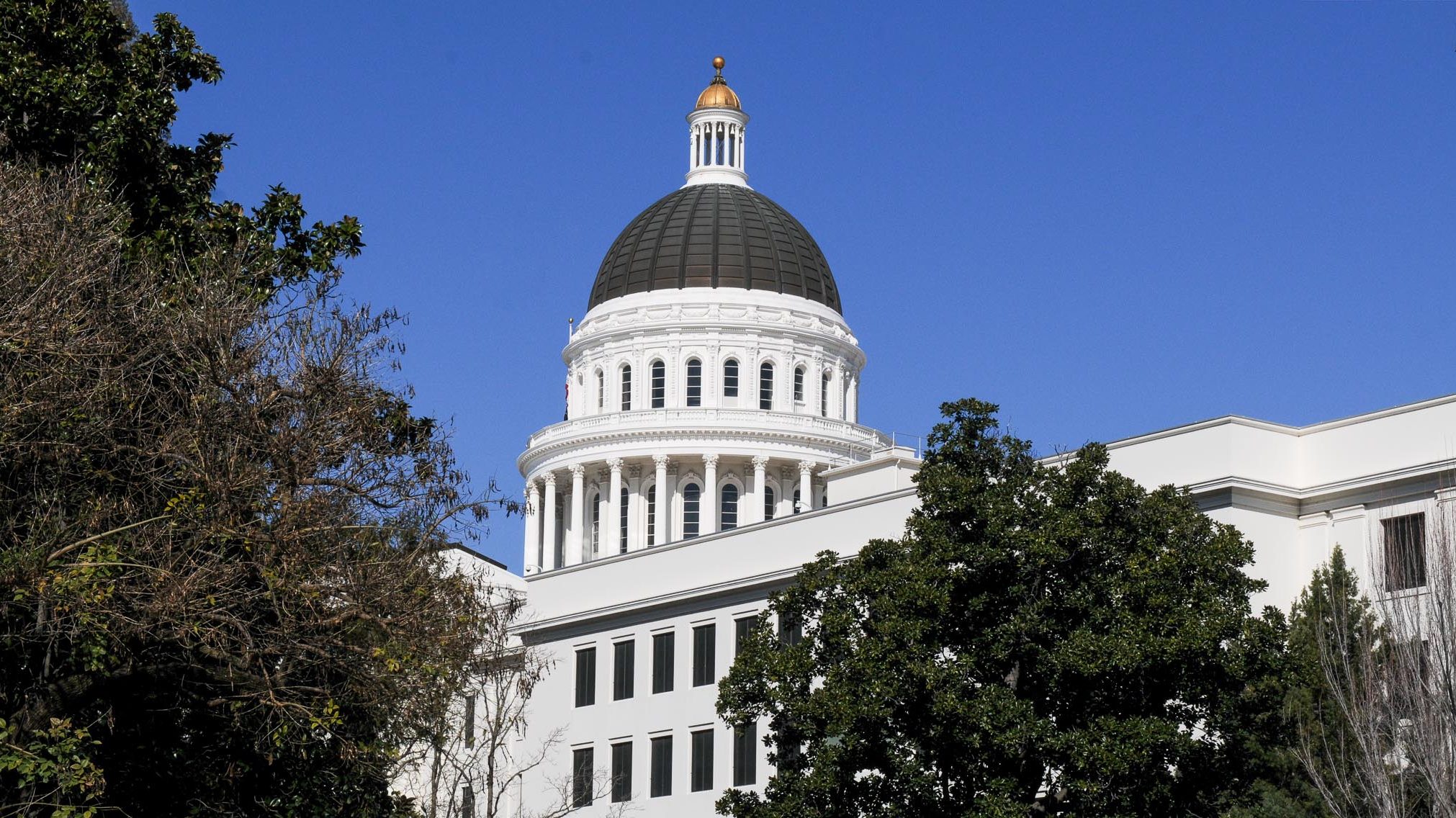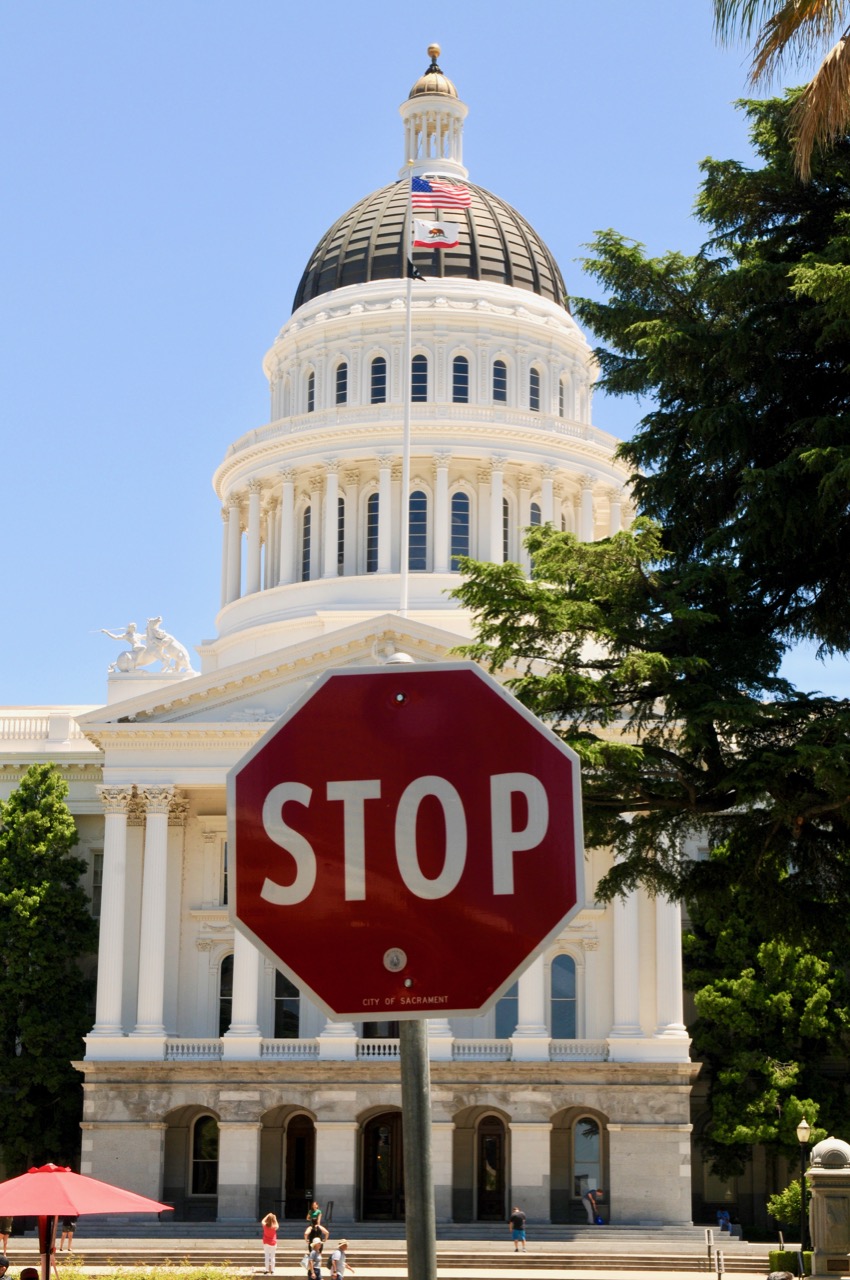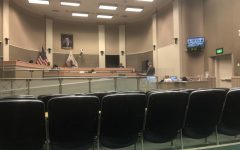
United States Constitution. (Photo: archives.gov)
Lawsuit Challenges Public Access to LAUSD Employee Orientations
Janus v. AFSCME was heralded as a sea-change in the way unions did business
By Timothy Snowball, May 8, 2023 12:40 pm
A lawsuit filed on Monday alleges that a California statute, Government Code § 3556, violates the First Amendment by denying the general public access to the dates, times and locations of new government employee orientations – all the while furnishing labor unions with the exact same information.
This is a textbook example of an unconstitutional, content-based speech regulation.
In its landmark 2018 Janus v. AFSCME ruling, the U.S. Supreme Court affirmed that public employees could no longer be forced, as a condition of employment, to contribute automatic payments to subsidize unions’ political speech.
The court found that any other system lacking affirmative consent by the employee runs afoul of the First Amendment.
Had the unions simply been taking the money and spending it to improve the wages, hours and working conditions of employees, it would have at least appeared less objectionable, as these activities are at least in line with traditional union advocacy.
However, as the court noted in Janus, all modern union activity qualifies as political speech, as most unions are more interested in pushing a radical political agenda than they are in representation.
Long desired by civil libertarians, Janus was heralded as a sea-change in the way unions did business. Instead of taking government workers’ money, whether they liked it or not, the unions would have to actually convince people to join the union and sign up for payment, like any other membership organization.
Obviously, this didn’t sit well with the unions – or their paid allies in California government.
Consequently, even before Janus was issued, the unions and California Legislature cooked up a new package of statutes designed to preserve union power by ignoring the Constitution and the expressed will of the justices.
Under SB 866, to cite one example, it’s illegal for government employers to discuss the First Amendment with their own employees, under pain of an unfair labor practice charge, while requiring employees with questions about their union payroll obligations to consult with the union rather than their own payroll departments.
Those complaints, you’ll be shocked to learn, often fall on deaf ears.
Similarly, § 3556 makes it illegal for government employers to make public any information regarding the dates, times and locations for orientation meetings all new government hires are required to attend. The unions anxious to represent these employees, however, are not only provided with the information but invited to participate.
Not only does § 3556 grant unions a captive audience with new members – in many cases, bullying and deceiving them into signing restrictive dues authorization cards – but it specifically shields these employees from any other point of view.
The Freedom Foundation, for example, is a national union watchdog organization whose primary mission is to inform employees about their First Amendment right to refuse union membership and payments. Often this entails filing requests for public records with government employers requesting information about how to contact employees.
This contact often occurs through mail, email, or over the telephone. But ideally, the Foundation outreach team prefers to speak to employees face-to-face.
This past January, the organization requested the dates, times, and locations of new employee orientations from officials with the Los Angeles Unified School District (LAUSD). The plan was simply to be on site on the identified days in order to hand employees flyers discussing their rights or chat with them on their way in or out the door.
By denying this request, LAUSD relied specifically on the prohibition on sharing information contained in § 3556, prompting the Freedom Foundation to file suit seeking to protect its constitutional rights.
The suit is based on four legal theories.
First, the government cannot choose who can and cannot access public information based solely on the identity of the requestor. Second, the government cannot choose who can and can’t speak based on the content of that speech (in this case, by favoring pro-union speech and stifling all other views).
Third, requiring the Freedom Foundation to obtain permission from the government before engaging in speech with new employees is an unconstitutional prior restraint. And finally, absent a compelling justification, the public has the right to access truthful information held by the government. Here, the only justification is an unconstitutional one.
Filed in the U.S. District Court for the Central District of California, the Freedom Foundation’s lawsuit seeking a declaratory judgment, a permanent injunction and nominal damages for the violation of the U.S. Constitution.
- Palm Springs union admits unconstitutional conduct in settlement - March 25, 2024
- Recent Legal Battle Latest in War to Protect the American Worker - December 5, 2023
- Lawsuit Challenges Public Access to LAUSD Employee Orientations - May 8, 2023







